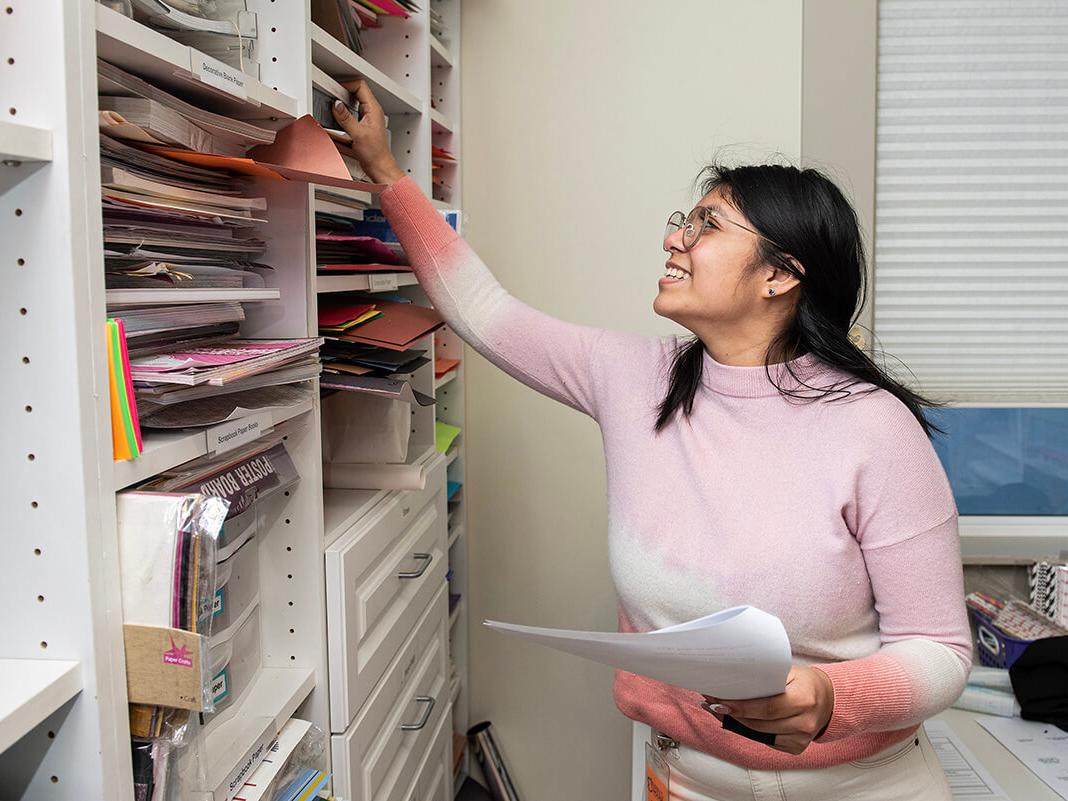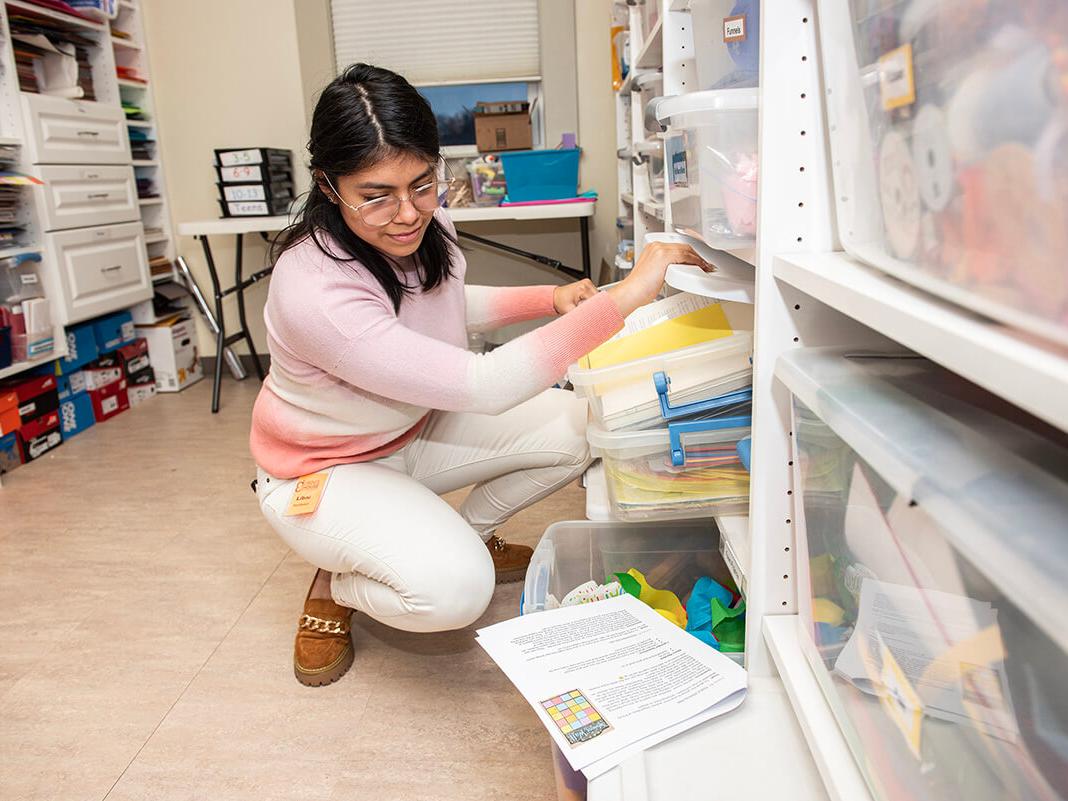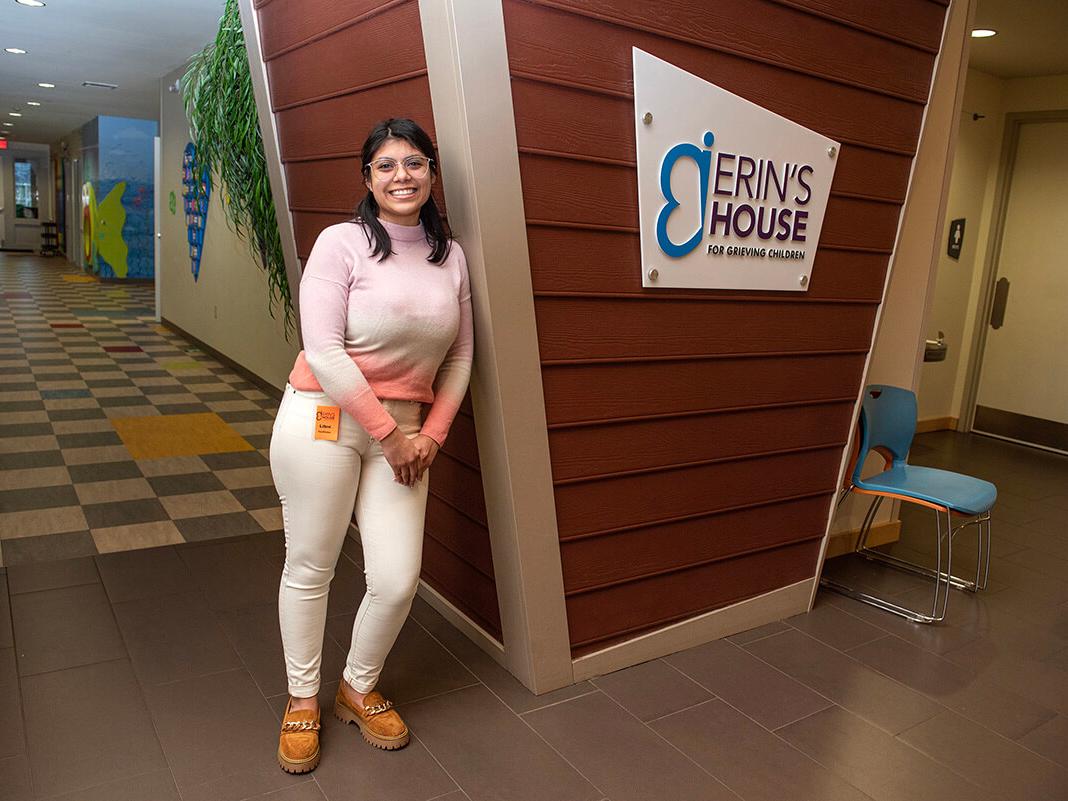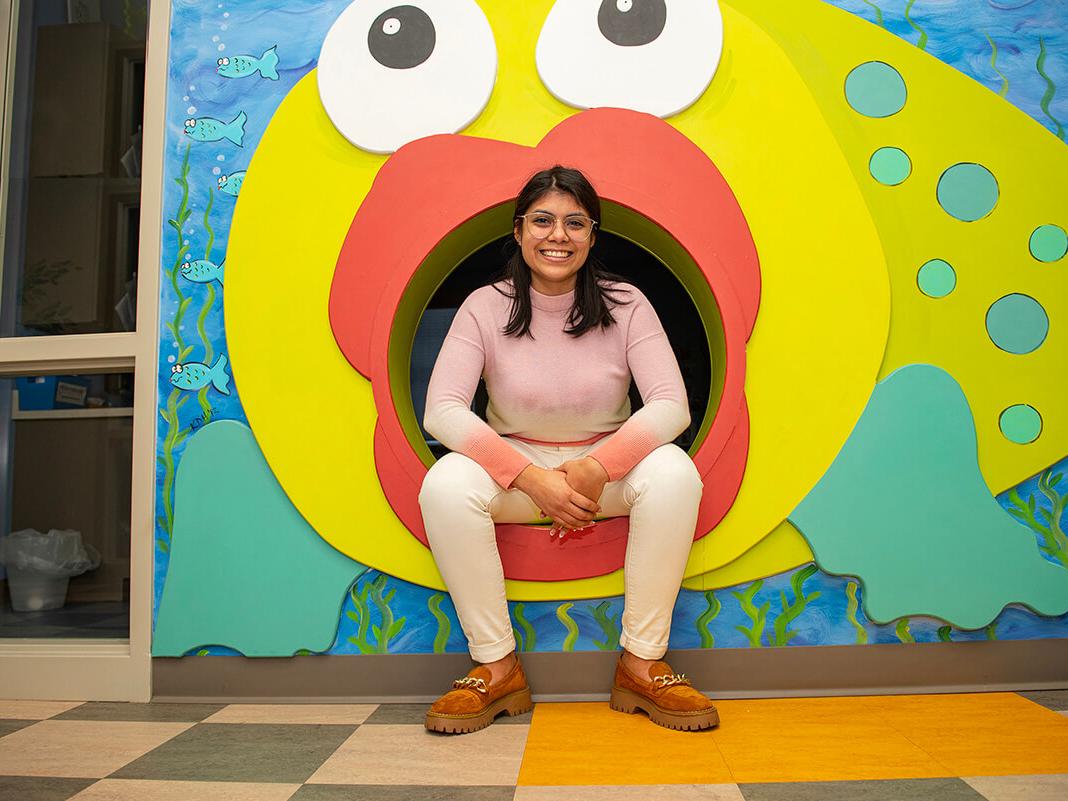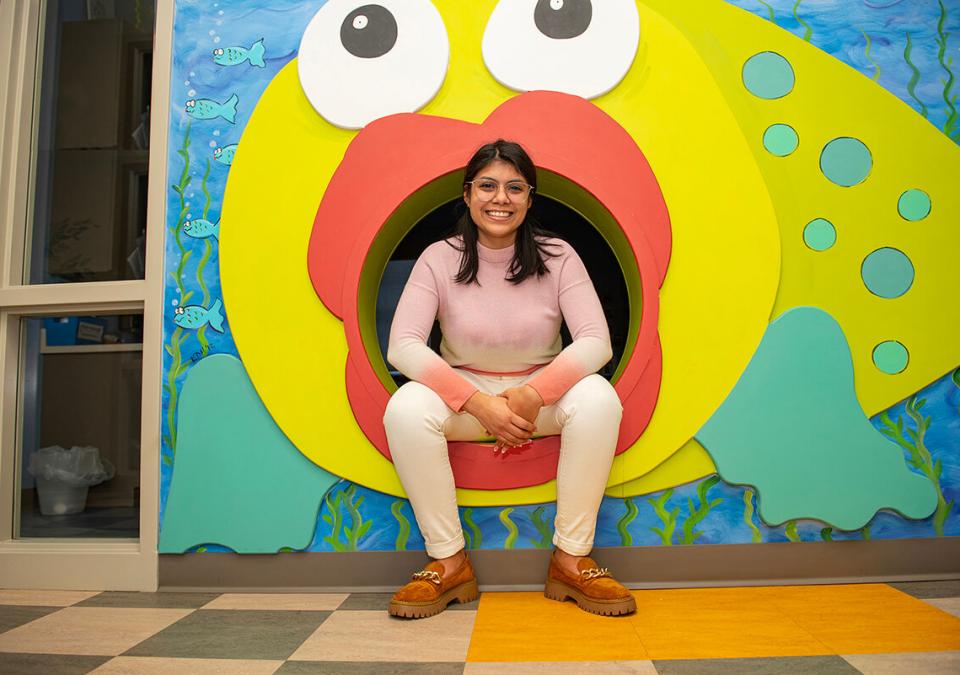
PFW Story
Trostel learning about death to help youth learn to move on with life
When Libni Trostel tells friends about her professional dreams, some wrinkle their noses, even suggesting she’s morbid, sometimes leading to awkward conversations.
Throughout high school, Trostel planned on becoming an astronautical engineer at Purdue University and was accepted to attend school in West Lafayette before finding a new path at the last minute – a true calling – while volunteering at Erin’s House for Grieving Children.
One day as she was riding bikes with friends to a northeast Fort Wayne park, Trostel noticed a new facility being built in the neighborhood. Wondering why kids were going in, Trostel looked online and what she read captured her imagination. She decided to volunteer, hopefully in the library, but Director of Volunteers Ellen Roemke saw something different for Trostel.
“The first thing that stood out to me about Libni was her sweet and caring disposition,” Roemke said. “Her calming voice and demeanor put you at ease instantly; and here at Erin’s House, that is exactly the kind of support our kids need from our trained facilitators. Someone who sees them, recognizes their struggles, and helps them connect with other peers who have similar challenges so they can support one another.”
Since she was 16, Trostel has been serving as a children’s grief facilitator, hosting twice-monthly sessions for youths aged 10-to-13. With a nudge from a Purdue University Fort Wayne student who was interning at Erin’s House, Trostel changed her plans and became a Mastodon majoring in human services. She’s also minoring in psychology and earning a certificate in death education, focusing on death, dying, and bereavement.
After graduating in May, Trostel wants a master's degree in thanatology – the study of death – to work in a children’s hospital as a bereavement counselor or coordinator, implementing a program like the one at Erin’s House.
“I would say it picked me, in a way,” Trostel said. “I just kind of grew into it. I’m not entirely convinced this is what I’m supposed to do, but I find death and bereavement so interesting. For the last couple of years, I’ve been writing all my research papers about different kinds of grief disorders, especially prolonged grief. There’s very little research on it.”
Trostel understands vividly that the people who pass are no longer in pain, but those left behind certainly are sometimes, and she can be a blessing to help them deal with that. She’s studying death to be able to help those who survived the death of a loved one, particularly children and teenagers who lack understanding and coping skills.
“Libni is so special because everything she does is led by her heart and compassion for others,” said Alice Jordan-Miles, the director of PFW’s Behavioral Health and Family Studies Institute who oversees Trostel’s internship. “She understands and appreciates that working in the human service field is hard and so ever-evolving. Some people make an effort to be kind and considerate, it’s natural for Libni – part of her fabric! She’s passionate, driven, and definitely a game changer in the field.”
Part of that comes from Trostel’s experience with disenfranchised grief as a child. At age 10, she suffered an autoimmune disease and two years later was diagnosed with dermatomyositis, which affects about three in 1 million children. With dermatomyositis, the autoimmune system attacks the connective tissue, particularly between the shoulders and knees, and a characteristic is a severe rash.
Trostel was covered head to toe by a rash that itched. The second she touched her skin, it would burn and then go away for a split second before returning to an itch. After being diagnosed at Riley Hospital for Children in Indianapolis, Trostel used a ton of medications and underwent weekly chemotherapy treatment for eight years.
“Looking back at it now, I know I was experiencing disenfranchised grief because of the loss of health, the loss of a normal childhood, but then I didn’t know what it was," she said. "I was just sick and didn’t know why, or why I felt like that.”
She’ll continue to have flareups and has to be careful, but Trostel is generally healthy. She's using that experience to relate to others who are grieving, studying death so she can support the living.
“She’s willing to share the hurdles she was able to overcome to help others,” Roemke said. “I truly believe she is gifted with the ability to relate to children on their level. She earns the trust of the kids in her group by providing a compassionate and empathetic environment where they can express themselves freely, feeling safe both physically and emotionally.”
